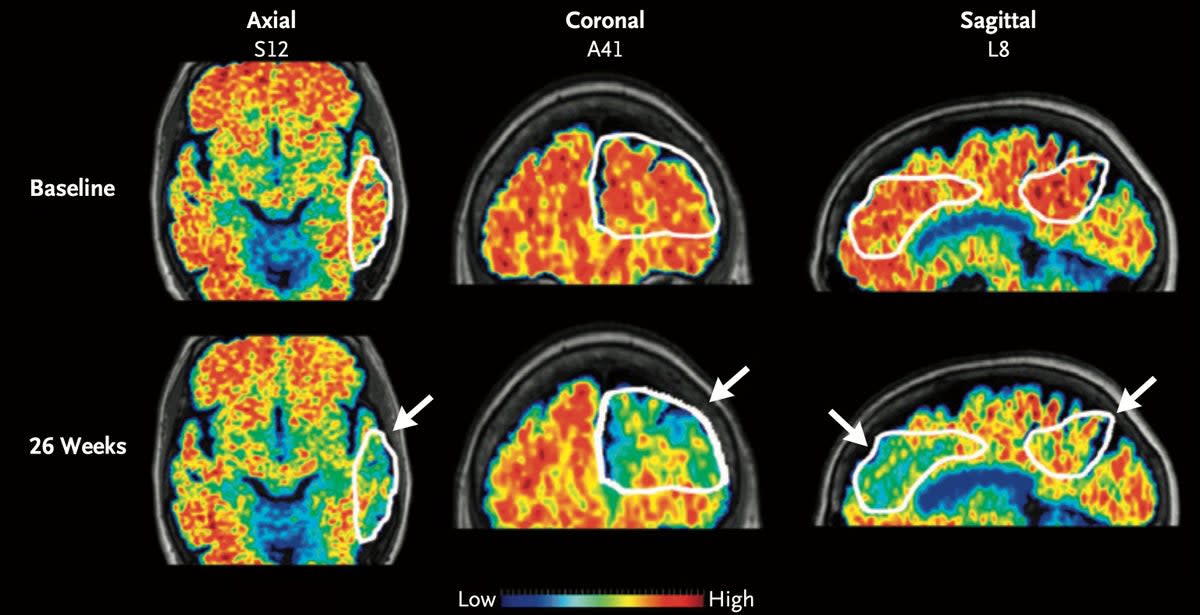First evidence of Alzheimer’s being transmitted between humans in medical procedures

Five patients are believed to have developed Alzheimer’s after receiving now-banned growth hormone treatment that was given to nearly 2,000 children decades ago, in the first evidence of human transmission of the disease.
A new study found a handful of people who received the hormones – which were banned in 1985 – had gone on to develop early onset Alzheimer’s and stroke symptoms.
Between 1959 and 1985, the hormone, taken from dead donors, was used to treat at least 1,848 people in the UK. It was used for various causes of short stature – when a child or a teen is well below the average height of their peers.

According to the University College London (UCL) and University College London Hospitals (UCLH) researchers, the findings may have important implications for understanding and treating Alzheimer’s disease.
Experts stressed that findings do not indicate that Alzheimer’s disease can be passed between people through everyday activities or routine care and there is no cause for concern for the health of the general population.
But the team says it implies some of the ways the condition develops within a person’s brain could be similar to other diseases spread by abnormally folded proteins, known as prions.
The lead author of the research, Professor John Collinge, director of the UCL Institute of Prion Diseases and a consultant neurologist at UCLH, said: “There is no suggestion whatsoever that Alzheimer’s disease can be transmitted between individuals during activities of daily life or routine medical care.
“However, the recognition of transmission of amyloid-beta pathology in these rare situations should lead us to review measures to prevent accidental transmission via other medical or surgical procedures, in order to prevent such cases from occurring in future.”
The people described in the study had all been treated as children with a type of human growth hormone taken from dead donors (cadaver-derived human growth hormone or c-hGH).
The treatment was withdrawn in 1985 after it was recognised that some c-hGH batches were contaminated with prions (infectious proteins) which had caused Creutzfeldt-Jakob disease (CJD) – a rare and fatal condition that affects the brain – in some people.
Although the procedure that led to this transmission was stopped in the Eighties, experts recommend medical procedures should be reviewed to ensure rare cases of Alzheimer’s transmission do not happen in the future.
Alzheimer’s is caused by the build-up of the proteins in the brain, and usually occurs later in adult life with no specific family link, or more rarely it could be an inherited condition that occurs due to a faulty gene.
This latest study reports on eight people referred to UCLH’s National Prion Clinic at the National Hospital for Neurology and Neurosurgery in London, who had all been treated with c-hGH in childhood, often over several years.
Five of them had symptoms of dementia, and either had already been diagnosed with Alzheimer’s disease or would otherwise meet the diagnostic criteria for this condition.
Dr Richard Oakley, associate director of research and innovation at Alzheimer’s Society, said: “This study provides evidence of an extremely rare and unusual route through which Alzheimer’s disease could potentially have been transmitted to some patients after they received human growth hormone from deceased donors’ brains.
“However, it is not known how common Alzheimer’s transmission was in the 1,800 people who had this treatment and the study only looked at the records of eight people.
“With the treatment not used since 1985, there is no cause for concern for the health of the general population. Nowadays, patients receive synthetic alternatives which have been approved for safety and do not pose a risk of transmitting diseases.”
Professor Bart De Strooper, group leader at the UK Dementia Research Institute at UCL, said: “This is a very interesting study providing further insight on the risk of a transmissible form of amyloid beta, a protein implicated in cerebral amyloid angiopathy and Alzheimer’s disease.”
However, he added that based on current evidence the risk of acquiring a transmissible form of amyloid is “very low” and that no one should reconsider or forego any medical procedures.


